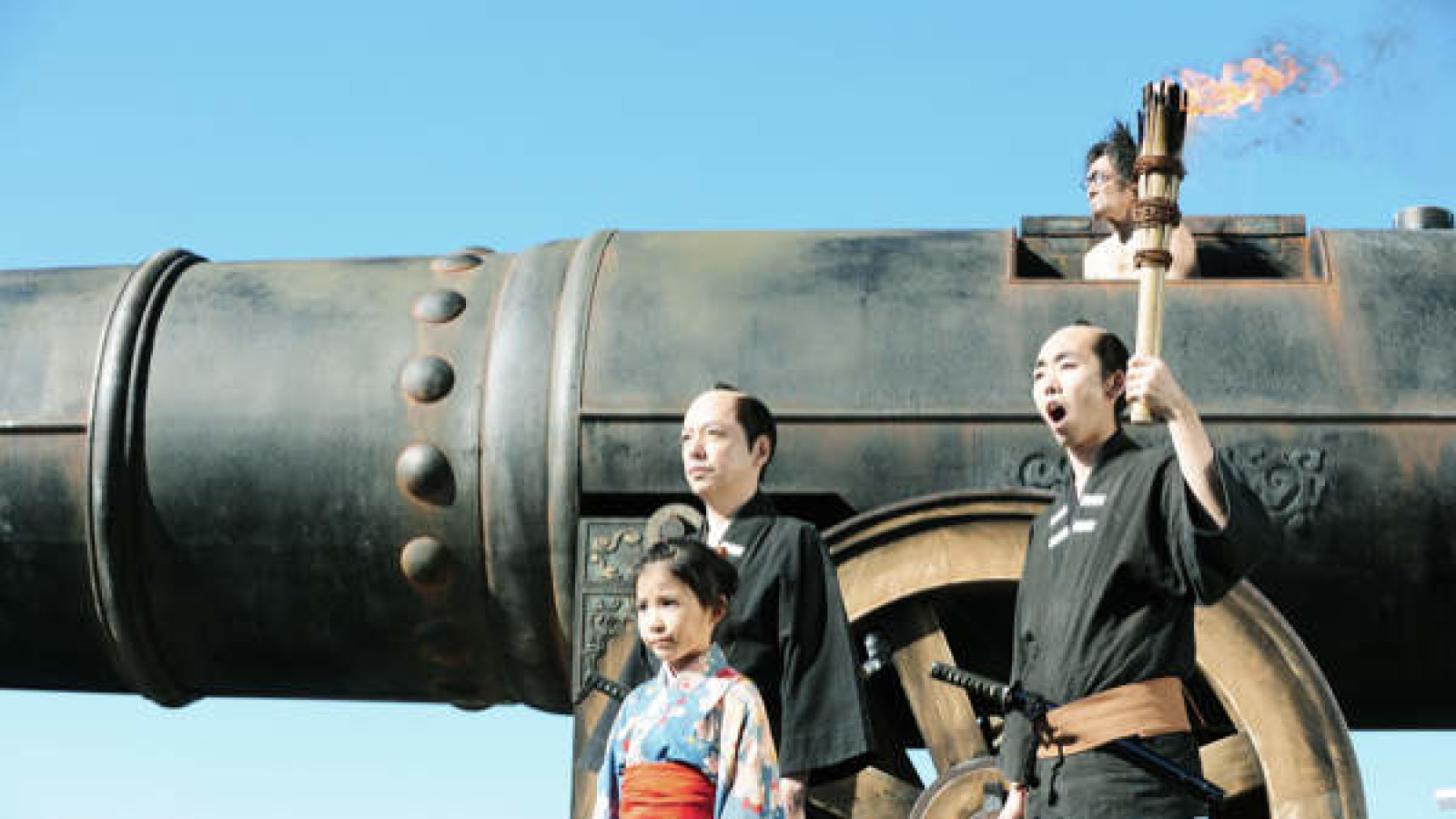Scabbard Samurai - Saya-zamurai

North American Premiere!
Dying is easy, but comedy is hard. No one knows that better than director Hitoshi Matsumoto, Japan’s most popular comedian and the director of NYAFF hits Big Man Japan and Symbol. Set in the Edo era, Scabbard Samurai is about Kanjuro, a broken-down “scabbard samurai,” who no longer wishes to fight after the death of his wife. But the local Lord has branded him a deserter and ordered him to avenge his honor by committing seppuku—or, he can choose what’s behind Door Number Two. The Lord’s young son has not cracked so much as a smile since the death of his mother, and the royal family is looking for something—anything—to lift his spirits. Kanjuro’s mission, should he choose to accept it, is to make the Prince smile again, and he has 30 days to do it. If he succeeds before the month is out, his life will be spared. Otherwise, he’ll die trying.
Kanjuro’s act starts out small—he does the Marlon Brando fruit trick from The Godfather, and sticks some noodles in his nose—but parlor tricks won’t cut it, and his hardboiled young daughter Tae (the formidable Sea Kumada), who had hoped he would take the “honorable path” of ritual suicide, becomes his comedy taskmaster, his carnival barker, press agent and one-woman hype squad. The act gets progressively more wild and woolly—eating a live octopus, leaping through burning rings—and he becomes a social phenomenon, with tickets sold and aisle seating. But as the audience swells and the days pile up, no one truly knows what’s on the taciturn samurai’s mind. Like every artist, he has personal demons who ultimately demand their due.
Scabbard Samurai is Matsumoto’s most grounded film to date. Featuring his trademark deadpan humor—the bounty hunters pursuing Kanjuro include a grotesque known as “Gori Gori the Chiropractikiller”—it’s also an intimate story of a wounded soul forced to live in public. Masterfully portrayed by (believe it or not) amateur actor Takaaki Nomi, Kanjuro is a spellbinding scarecrow, his heartache a wound that never heals. Scabbard Samurai is a side-splitting tearjerker that never takes the easy way out. It’s a parable about the impermanence of honor and the weight of guilt, a meta-narrative about the anxiety of performance and the agony of the creative process, and a story about how we all struggle to fight through our grief.






